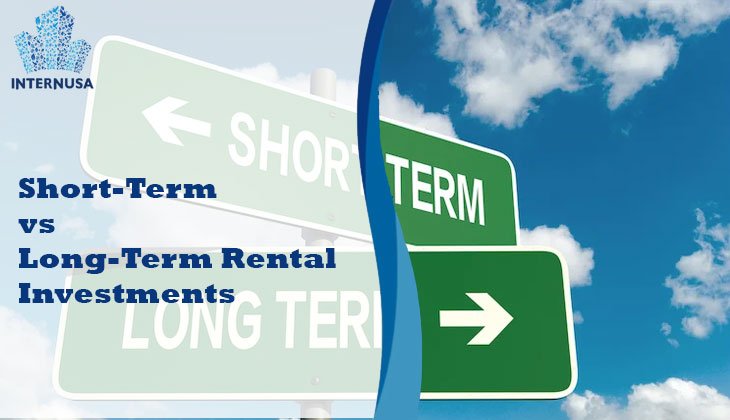Technology in Property Valuation
Property valuation is a critical part of the real estate industry—impacting everything from buying, selling, and financing to taxation and investment analysis. Traditionally, valuation relied on manual inspections, historical data, and human judgment. But today, technology is reshaping the landscape, making valuation faster, more accurate, and increasingly data-driven.
This article explores how cutting-edge technologies such as AI, big data, IoT, drones, and blockchain are transforming property valuation practices across residential, commercial, and industrial real estate sectors.
1. Automated Valuation Models (AVMs)
Automated Valuation Models (AVMs) use algorithms and data analytics to estimate property values without human appraisers. These systems pull data from public records, recent sales, tax assessments, and market trends to generate real-time valuations.
Benefits:
-
Fast and cost-effective
-
Available 24/7
-
Ideal for banks, insurers, and online platforms
Limitations:
-
Less accurate for unique or high-end properties
-
May miss factors like recent renovations or property condition
AVMs are widely used by mortgage lenders and online property platforms like Zillow, Redfin, and Realtor.com.
2. Big Data and Predictive Analytics
Big data helps bring contextual depth to property valuation by analyzing thousands of variables, including:
-
Neighborhood crime rates
-
School rankings
-
Public transport access
-
Future zoning and development plans
-
Environmental risks (flood, fire, pollution)
Predictive analytics can even estimate how property values will change over time based on trends in infrastructure, demographics, and economic activity.
This level of insight allows investors, developers, and buyers to make more informed, forward-looking decisions.
3. Artificial Intelligence and Machine Learning
AI and machine learning (ML) bring pattern recognition and decision-making capabilities to the property valuation process. These tools analyze vast datasets to refine valuation models continuously.
Use Cases Include:
-
Pricing recommendations for real estate agents
-
Risk modeling for banks and insurers
-
Detecting outliers or fraud in property listings
-
Adjusting valuations based on market volatility
AI also enables personalized valuations, adapting calculations based on buyer profiles and preferences.
4. Geographic Information Systems (GIS)
GIS tools map property data geographically, offering visual insights into location-based value drivers. By layering information such as traffic patterns, elevation, amenities, and land use, GIS helps appraisers understand how location affects property worth.
Common GIS Applications:
-
Heat maps of price trends
-
Flood risk mapping
-
Proximity to transport, schools, and green space
-
Zoning and land use overlays
GIS is especially powerful in urban planning, investment analysis, and public-sector decision-making.
5. Drones and Aerial Imaging
Drones offer a cost-effective and detailed view of a property and its surroundings. Appraisers and surveyors use drone footage to assess:
-
Property size and layout
-
Roof and structural condition
-
Landscaping and topography
-
Nearby infrastructure or hazards
Drones are particularly useful for large estates, rural land, or properties with difficult access. Their high-resolution imagery also supports remote valuations and virtual inspections.
6. Internet of Things (IoT)
IoT sensors embedded in buildings collect real-time data about property performance and condition. For valuation purposes, this includes:
-
Energy efficiency and HVAC performance
-
Water usage and leak detection
-
Structural health monitoring
-
Indoor air quality
IoT data helps appraisers better understand the long-term operational costs and asset quality, which affect value—especially in commercial and industrial properties.
7. Virtual Reality (VR) and Augmented Reality (AR)
While VR and AR are more commonly associated with property marketing, they also aid valuation by allowing:
-
Remote property walkthroughs
-
3D visualization of layouts and dimensions
-
Comparison of “before and after” renovation scenarios
For investors and appraisers evaluating properties in different locations, VR saves time and enhances accuracy without physical visits.
8. Blockchain and Property Valuation Transparency
Blockchain offers a secure and transparent way to manage property data and transactions. In valuation, it can be used to:
-
Store title deeds and ownership records
-
Maintain logs of renovations or property upgrades
-
Track previous valuations and transaction history
This tamper-proof data improves trust and reduces disputes over property value. Some platforms are now exploring tokenization of real estate assets for easier valuation and liquidity.
9. Real-Time Market Dashboards
Modern valuation platforms provide real-time dashboards showing:
-
Comparable sales
-
Demand-supply ratios
-
Rental trends
-
Mortgage rates and affordability indexes
This data empowers appraisers, agents, and buyers to benchmark property values more accurately and dynamically.
Such tools are widely used in large property firms, fintech startups, and even by governments for tax assessments.
10. Regulatory Technology (RegTech)
RegTech solutions help ensure that property valuations comply with local regulations and global valuation standards. This includes:
-
Automating documentation
-
Ensuring proper methodology adherence
-
Generating audit trails for compliance
For lenders and institutional investors, this reduces legal risk and improves reporting transparency.
Challenges and Considerations
Despite these advancements, technology in valuation comes with its own set of challenges:
-
Data privacy and security: Sensitive data must be protected
-
Bias in algorithms: AI can reflect human biases if not trained carefully
-
Lack of physical context: Some unique property aspects may not be captured digitally
-
Regulatory acceptance: Some markets still require manual or certified appraisals
Therefore, while technology enhances valuation, human expertise remains essential to interpret and validate results.
Conclusion
Technology is rapidly transforming how properties are valued—making the process faster, more consistent, and data-driven. Tools like AVMs, AI, drones, and blockchain are no longer futuristic; they’re becoming standard in leading markets.
As these tools mature and integrate, we can expect greater accuracy, transparency, and accessibility in property valuation across all sectors. Investors, buyers, appraisers, and regulators who embrace this shift will benefit most from the efficiencies and insights it provides.







